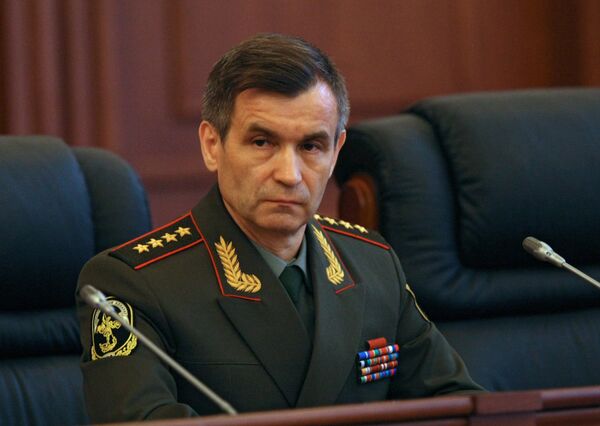The number of attacks on Russian police officers reached 6,000 last year, almost twice the 2010 figure, Interior Minister Rashid Nurgaliyev said on Tuesday.
He did not elaborate on what caused the surge, but officers on the ground blamed it on the populace’s mounting displeasure with officials of all stripes.
“This is a challenge to the entire law enforcement system, and we’ll be reacting as harsh as possible within the limits of the law,” Nurgaliyev said at a session of the Interior Ministry's internal affairs department.
More than 1,800 policemen and their families sought state protection last year, a 30-percent increase from 2010, Yury Draguntsov, head of the internal affairs department, said at the same session.
Many radical nationalists have named the authorities as their prime targets in recent years. Left-wing activists have also attacked the police, with anarchists credited with several cases of torching police cars and precincts in Moscow last year.
Violence against police is also widespread in the North Caucasus, where the law enforcers are waging a long and bloody battle against Islamic insurgency.
The Kremlin implemented a sweeping police reform last year, but only six percent of the 1,600 respondents in a November poll by Levada Center said the revamped force had improved, compared with 14 percent who think it became worse.
“The public is taking it out on us over their disapproval of the authorities,” said Igor, a former policeman who was sacked during the reform. He asked not to be identified because of his ongoing lawsuit against his ex-superiors who fired him.
“The good cops get thrashed for the bad ones, or for the powers that be,” Igor said. But he admitted he never had to deal with such attacks himself in the 20 years on the job.
“The people hate the authorities,” agreed Mikhail Pashkin of the Moscow police labor union.
“No one trusts the state agencies, they can’t handle their responsibilities, and the people take revenge for that,” he said by telephone.
Pashkin said the increase in attacks is likely due to the North Caucasus republics, where the locals – not the rebels – are getting fed up with the police’s heavy-handed methods of cracking down on the insurgency.
“But if that includes other [ethnically Russian] regions, it’s a very worrying message to the authorities,” Pashkin said.


